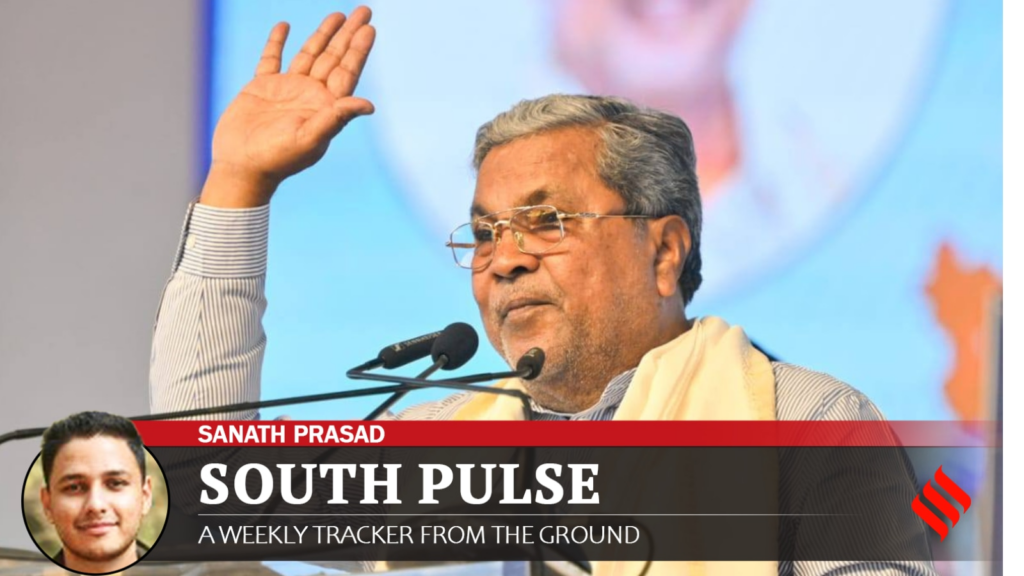The question of whether he will continue as the Karnataka Chief Minister is still up in the air, but Siddaramaiah seems to have just cemented his base among the farming community in the state.
This came after three-and-a-half years of protests led by farmer unions such as Samyukta Kisan Morcha (SKM) and Kisan Sangharsh Samiti, pro-Dalit forums, labour organisations, and literary personalities. The residents of 13 villages in Channarayapatna in rural Bengaluru, where the proposed project was to come up, also joined the protests. The state government has, however, said it would acquire land from those who consent to give their land for any future industrial projects.
The now-scrapped proposal in Devanahalli was initiated under the previous BJP government in August 2021. The fertile land — critical for crops like vegetables, fruits, and flowers that supply 30% of Bengaluru’s agricultural needs — was key to many farmers’ livelihoods, making its acquisition a deeply emotive issue.
In 2022, when the farmers launched their protests, Siddaramaiah was the Leader of Opposition and had publicly made a promise to the farmers that he would scrap the acquisition if Congress comes to power.
After assuming office, his government’s sanction of a final acquisition notification in April 2025 was seen as “betrayal” by the protesting farmers.
The issue ended up gaining momentum, with several leading figures such as actor-politician Prakash Raj, historian Ramachandra Guha, and writer Devanur Mahadeva also joining in to allege that the Congress was prioritising corporates over farmers’ interest. This criticism intensified following the “Devanahalli Chalo” protest on June 25, which gained national attention after police detained protesters, further denting the government’s image.
Agreeing to the demand to scrap the proposal would bolster Siddaramaiah’s image as a “pro-farmer leader” and bring him respite after a series of setbacks. Last year, the CM was under fire over his family’s involvement in the alleged Mysuru Urban Development Authority (MUDA) scam. In June this year, there was a stampede at Royal Challengers Bengaluru’s victory parade in Bengaluru.
Within the Congress, Siddaramaiah faced complaints from several MLAs over lack of funds to execute projects in their constituencies. Adding to this was the leadership tussle between him and Deputy CM D K Shivakumar. It only intensified with the countdown beginning for November, when Siddaramaiah would hit the half-way mark of his tenure – the point at which a change of guard is supposed to take place, as per an unwritten agreement claimed by Shivakumar’s supporters, which is denied by the Siddaramaiah camp.
Amidst these developments, his decision to drop the Devanahalli land proposal has led to Siddaramaiah being projected as a leader “responsive to grassroots movements”.
A S Raghu, a farmer and member of the Channarayapatna Land Struggle Committee, an apex body organising the protests, told The Indian Express, “If not for Siddaramaiah at the helm, the decision would not have been in our favour. Some senior leaders in the government tried to create divisions among the protesting farmers to serve vested interests, but they failed. The CM reinforced his commitment to farmers’ livelihood and we are grateful to him.”
However, the decision to withdraw the notification appears to have upset pro-industry leaders who wanted to position Karnataka as a hub for the aerospace and defence sector.
Industries minister MB Patil had earlier argued that neighbouring states Andhra Pradesh and Tamil Nadu were aggressively expanding their industrial base by offering large parcels of land at subsidised rates. The minister expressed concerns about Karnataka suffering losses if companies in this sector shift their operations to other states.
At present, Karnataka, a national leader in the aerospace and defence sector, contributes nearly 65% to the country’s output in these sectors. The state is home to major industry giants such as Hindustan Aeronautics Limited (HAL), Safran, Boeing, Airbus, Collins, and Lockheed Martin, with a well-established aerospace park already operating near the Kempegowda International Airport in Devanahalli.
To further consolidate its strategic advantage, the Karnataka government felt the need for an additional aerospace and defence park in the region and pushed for strengthening infrastructure around Bengaluru.

